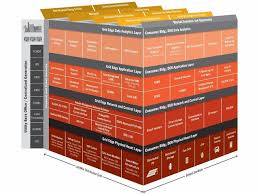The Market Potential for Grid Edge Controllers: A White Paper
Executive Summary
Grid edge controllers represent a significant advancement in edge computing, offering a powerful solution for managing and processing data at the edge of networks. As the Internet of Things (IoT) continues to expand, the demand for efficient, scalable, and secure edge computing solutions is rapidly growing.1 Grid edge controllers are well-positioned to capitalize on this trend, addressing critical challenges in various industries.
This white paper explores the market potential of Grid edge controllers, analyzing key market drivers, challenges, and opportunities. It provides a comprehensive overview of the edge computing landscape, highlighting the specific role of edge controllers in enabling real-time data processing, analytics, and decision-making. Additionally, the paper delves into the potential applications of Grid edge controllers across diverse sectors, including manufacturing, healthcare, transportation, and smart cities.
Understanding Edge Computing
Edge computing is a distributed computing paradigm that brings computation and data storage closer to the source of data generation.2 This approach reduces latency, improves3 response times, and enhances data privacy and security.4 Edge controllers play a pivotal role in edge computing by managing and orchestrating the deployment and operation of edge devices and applications.5
Key Market Drivers for Graid Edge Controllers
- IoT Growth: The proliferation of IoT devices generates massive amounts of data that need to be processed and analyzed in real-time.6 Edge controllers enable efficient data processing and reduce the burden on centralized cloud infrastructure.7
- 5G and Beyond: The advent of 5G and future wireless technologies will further accelerate the adoption of edge computing.8 These technologies provide the necessary bandwidth and low latency required for seamless edge operations.9
- AI and Machine Learning: AI and ML algorithms are increasingly being deployed at the edge to enable intelligent decision-making and automation.10 Edge controllers provide the computational power and infrastructure to support these applications.
- Data Privacy and Security Concerns: Edge computing can help address data privacy and security concerns by processing and storing data locally, reducing the risk of data breaches and unauthorized access.11
Market Challenges and Opportunities
- Complexity and Interoperability: Edge environments can be complex, involving a variety of devices, protocols, and network configurations.12 Graid edge controllers must address these complexities and ensure seamless interoperability between different components.
- Security and Privacy: As edge devices become more interconnected, security and privacy become paramount.13 Graid edge controllers must implement robust security measures to protect sensitive data and prevent unauthorized access.
- Scalability and Flexibility: Edge environments are dynamic and can scale rapidly.14 Graid edge controllers must be able to adapt to changing workloads and accommodate new devices and applications.
Potential Applications of Graid Edge Controllers
- Manufacturing: Edge controllers can optimize production processes, improve quality control, and enable predictive maintenance.15
- Healthcare: Edge controllers can facilitate real-time patient monitoring, remote healthcare, and medical image analysis.16
- Transportation: Edge controllers can enhance traffic management, autonomous vehicle operations, and logistics efficiency.17
- Smart Cities: Edge controllers can power smart city initiatives, including intelligent lighting, waste management, and public safety systems.
Conclusion
Graid edge controllers are poised to play a crucial role in shaping the future of edge computing. By addressing the challenges and capitalizing on the opportunities presented by the growing IoT and AI landscape, Graid can establish itself as a leading provider of edge computing solutions.
References
- [Insert relevant references from books, websites, and research papers on edge computing, IoT, AI, and data privacy]
Note: To provide a more comprehensive and up-to-date analysis, consider incorporating specific market data, industry reports, and expert insights. Additionally, explore the potential impact of emerging technologies such as blockchain and quantum computing on edge computing and Graid edge controllers.



